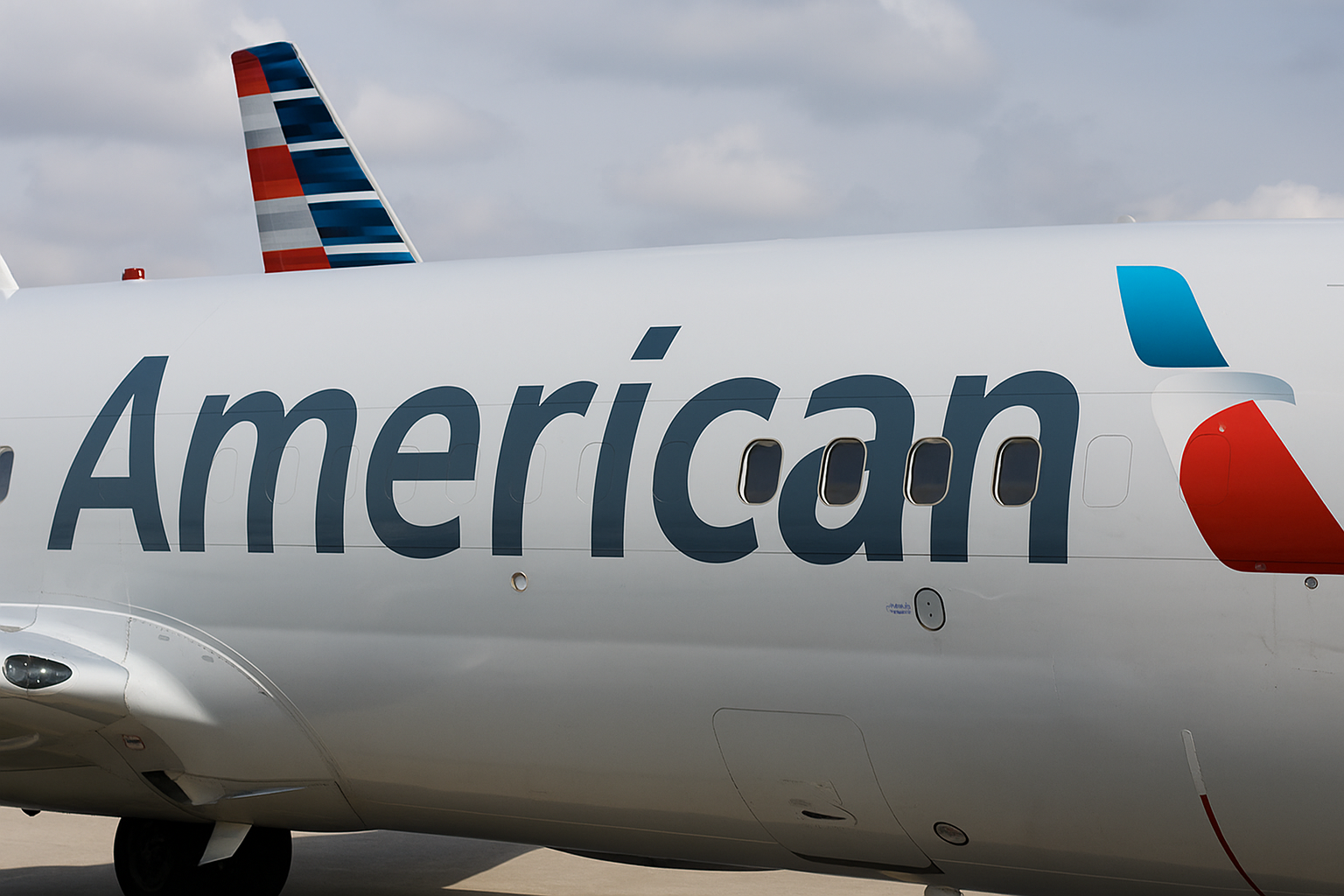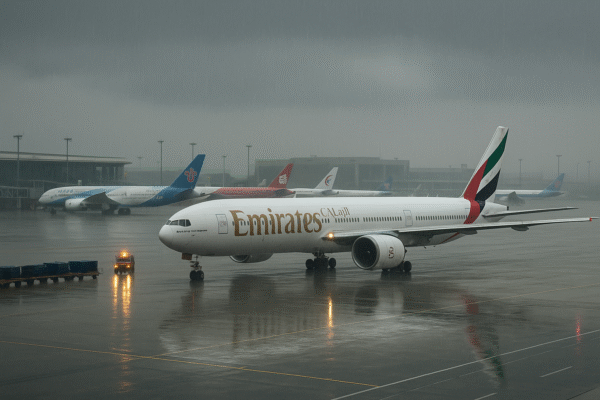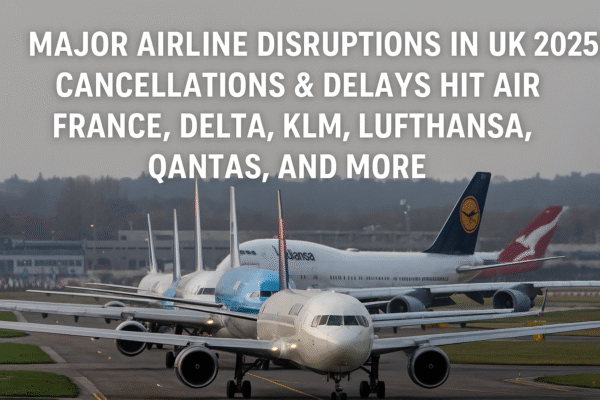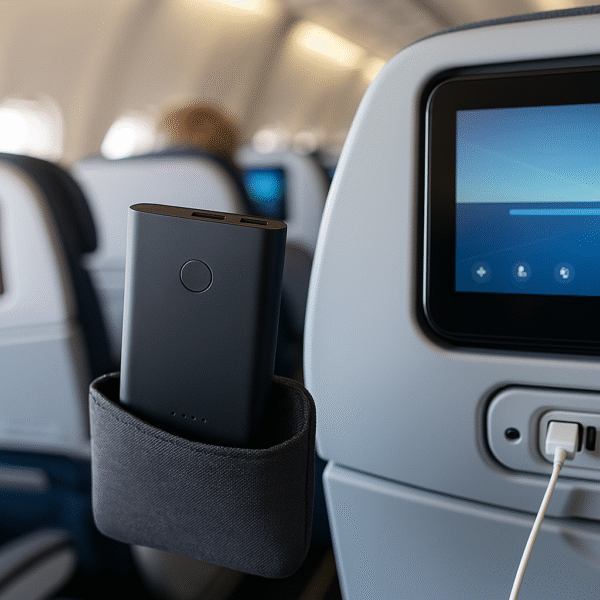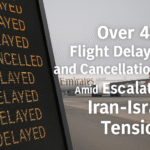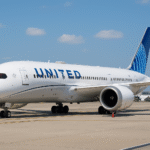United Airlines Suspends All Dubai Flights Amid Middle East Conflict, Disrupting U.S. Summer Travel Plans
In a sudden and impactful move, United Airlines has suspended all direct flights between Newark Liberty International Airport and Dubai International Airport, citing the escalating geopolitical conflict in the Middle East. The abrupt cancellation of this high-demand route, especially during peak summer travel season, has thrown thousands of travelers’ plans into chaos and spotlighted the growing volatility in international airspace.
The decision, announced on Thursday, marks a significant shift in the airline’s Middle East operations and follows a similar suspension of services to Tel Aviv earlier this month. United now offers no direct routes to Dubai, severing a vital transcontinental air bridge between the United States and one of the world’s premier travel, business, and transit hubs.
Regional Turmoil Forces United’s Hand
According to a brief statement from United Airlines, the suspension was enacted “due to conflict in the region.” Though the airline did not elaborate further, the backdrop is clear: the deepening military confrontation between Israel and Iran has led to missile strikes, disrupted regional air corridors, and elevated risks for aircraft operating over or near active conflict zones.
Aviation safety analysts point to increasingly uncertain conditions in the Middle East’s airspace, with concerns ranging from GPS interference and missile trajectories to the sudden closure of national airspaces. The UAE, although not directly involved in the Israel-Iran clashes, lies in close proximity to these high-risk zones.
The move echoes similar decisions by Delta and other global carriers, highlighting a growing trend among major airlines to temporarily retreat from unstable areas in the name of passenger and crew safety.
Dubai’s Tourism and Transit Role Disrupted
Dubai International Airport (DXB) is one of the world’s busiest international hubs and serves as a primary transit point connecting the Americas with Asia, Africa, and the broader Middle East. The abrupt cancellation of United’s Newark-Dubai route effectively eliminates the airline’s only direct link to the UAE, stranding business travelers, leisure tourists, and those making onward connections across continents.
The timing could not be more disruptive. With summer travel demand surging and Dubai’s tourism sector in full swing, thousands of U.S. travelers who had scheduled flights for business meetings, beach vacations, family visits, or events like the Arabian Travel Market are now scrambling to rebook with alternative carriers.
Passenger Fallout: Refunds, Reroutes, and Rebooking Chaos
Affected passengers are now facing the dual challenge of navigating last-minute flight changes and determining refund eligibility. United’s website offers limited guidance on rerouting options, prompting many to seek help through travel agents, codeshare partners, or competing airlines such as Emirates, Qatar Airways, and Turkish Airlines.
These carriers are likely to absorb the displaced demand, though analysts warn this could lead to overcrowded flights, increased fares, and strained services at peak capacity.
Travelers also face secondary concerns—such as trip insurance coverage, hotel reservation cancellations, and the risk of further route changes in an increasingly fragile geopolitical environment.
Newark-Dubai Route: A Strategic Link Severed
Until its suspension, the Newark (EWR) to Dubai (DXB) route was a flagship offering for United Airlines, serving a mix of corporate and leisure travelers. As United’s East Coast hub, Newark connects financial, medical, and technology industries directly with the Middle East’s fastest-growing market.
The airline’s withdrawal leaves a gap in the U.S.-UAE connectivity map and may push United to strengthen partnerships with Star Alliance carriers to maintain a limited presence in the region.
Meanwhile, Dubai’s broader aviation ecosystem may see a reshuffling of airline market shares, as Middle Eastern carriers recalibrate frequencies and U.S. travelers reevaluate safety and accessibility in the region.
Rising Risk Sensitivity in Aviation Strategy
United’s decision underscores a broader shift in the aviation industry, where political and security assessments are now as critical to route planning as passenger demand or profitability.
Airlines are investing in real-time intelligence systems, rerouting algorithms, and cross-border coordination to navigate rapidly evolving crises. The FAA, EASA, and ICAO have also stepped up advisories and collaborative protocols aimed at protecting civilian aviation from regional flare-ups.
As of now, the FAA has not issued a formal ban on flights to the UAE, but United’s proactive cancellation signals a high internal risk threshold.
Uncertainty Ahead: No Timeline for Resumption
United Airlines has not provided a timeline for when—or if—the Dubai route will resume. The airline is reportedly monitoring the situation in coordination with U.S. and international safety authorities. However, many in the industry caution that unless tensions de-escalate, the route could remain offline for the foreseeable future.
For now, passengers are urged to check with United or travel professionals before departure and to remain flexible with their travel plans.
Conclusion: A Cautionary Tale for Global Aviation
This cancellation is more than just a scheduling change—it marks a pivotal moment for the global travel industry. As the world grows increasingly interconnected yet geopolitically unstable, airlines like United must adapt swiftly, balancing operational continuity with safety imperatives.
For travelers, the lesson is clear: international travel in 2025 demands vigilance, flexibility, and an understanding that even the most routine routes are subject to change. As geopolitical tensions rise, the skies—once symbols of open access and seamless global movement—are becoming more uncertain than ever.
For more travel news like this, keep reading Global Travel Wire





